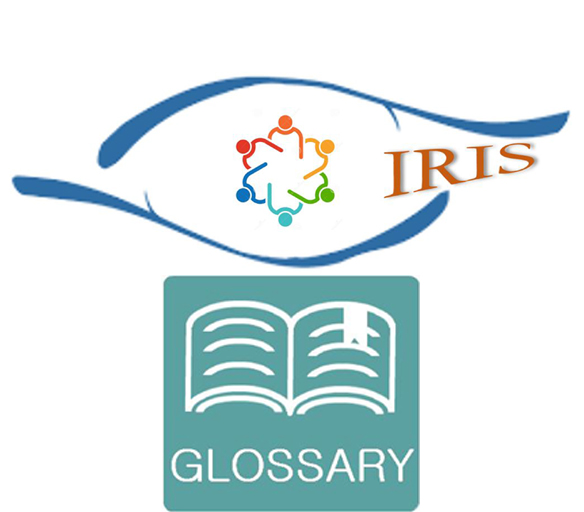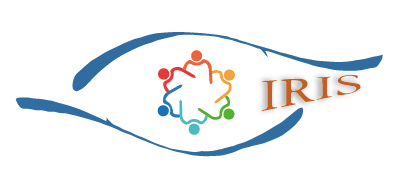
Identifying and Reconstructing indivIDual language Stories.

Promoting plurilingualism and enhancing individual language repertoires.
Annunci
Per richiedere l'accesso ai corsi del MODULE ONE scrivere a irisproject2017@gmail.com
To request access to the ONE MODULE courses write to irisproject2017@gmail.com
Pour l'accès à la consultation aux cours du MODULE ONE, écrivez à irisproject2017@gmail.com
Linguistic diversity is one of the characteristics of Europe. A significant number of languages coexist within it: official or national languages, minority languages, dialectal varieties and immigrant languages. The European project IRIS takes on and recognises the linguistic diversity of the six partner countries and aims to promote awareness and appreciation of plurilingualism, developing the intercultural competences of teachers dealing with multilingual classes with a strong presence of non-native learners and bi-lingual subjects. The aim is also that ultimately, the diversity and singularity of individual learning pathways is legitimized of individual students. Two questions emerged: what kind of teacher training would be more appropriate? such as the knowledge of approaches implemented in other educational contexts, the collaboration with actors of other pedagogical culture can improve teachers' practices? If the institutions of teacher training in each of the partner countries have structures, organisations and logics different, multilingual classroom situations present similar problems.
We have therefore developed some teacher training paths and some practices to be implemented in the classroom that we consider relevant in most of the 6 educational systems of the countries involved (and in others, to which we propose them). We have organised them into 3 modules, partly autonomous and partly complementary.The three modules have as their central theme the relationship of the individual subjects in training with their own language, with their own languages, with their own language repertoires.
Through different paths both on a thematic and methodological level, teachers will be guided to question themselves first (module 1) on the role of language and languages in the construction of individual identities, on the educational and intercultural function of the encounter with other languages, on the role that languages have always carried out in every political and social context. They can then ask themselves (module2) about language acquisition in our educational systems , about multilingualism in schools and the possibility of promoting it and making it a valuable resource to be exploited in transferring skills from one language to another. Finally ( module3) will be offered to users a rich assortment of teaching materials to be used in classes at different levels to enhance all the languages present and open each individual student to cultural diversity.
The three modules have a specific internal organisation and should be used independently. The first is a blended module that provides moments in presence and distance, and is conceived as a progressive approach to the ability to write one's own linguistic autobiography. The second is an online module with materials to be used autonomously and moments of self-evaluation. The third is made up of a series of cards that can be used freely by the teacher, choosing a progression that will be adapted to the context and the educational needs of each person, group of learners.
La diversité linguistique est l'une des caractéristiques de l'Europe. Un nombre important de langues coexistent dans cet espace: langues officielles, nationales ou minoritaires, variétés dialectales et langues des migrations successives, récentes et plus anciennes. Le projet européen IRIS, porté par six pays partenaires, prend la mesure de cet état de fait et promeut la sensibilisation au plurilinguisme ainsi que sa valorisation, en développant les compétences interculturelles des enseignants/formateurs qui interviennent auprès de publics variés et plurilingues. L'objectif est également de reconnaître la diversité et la singularité des parcours d'apprentissage des individus, en particulier des apprenants.
Deux questions se sont posées: quel serait le modèle de formation des enseignants le plus approprié? Comment s’appuyer sur des pratiques éducatives innovantes mises en place dans des contextes, certes, différents, mais dont les classes multilingues présentent des caractéristiques communes, afin d’améliorer les démarches pédagogiques? Pour ce faire, trois modules, en partie autonomes, en partie complémentaires, ont été élaborés afin d’accompagner les formateurs. Ils sont centrés sur la langue et les rapports que les sujets en formation entretiennent avec leurs répertoires langagiers.
Le module 1 (Autobiographies langagières: identités, langues, histoires) invite les enseignants à réfléchir sur les fonctions de la/les langues dans la construction des identités individuelles, sur la fonction éducative et interculturelle de la rencontre avec d'autres langues et sur le rôle que celles-ci jouent dans les espaces politiques et sociaux. Il est conçu comme un cheminement progressif pour l’écriture de l’autobiographie langagière. Il peut être utilisé aussi bien dans la formation en présentiel qu’à distance.
Le module 2 (formation de formateurs de langues au plurilinguisme) amène les enseignants à s’interroger sur l'acquisition des langues dans nos systèmes éducatifs respectifs, sur le plurilinguisme à l'école, sur la possibilité de le promouvoir et d'en faire une ressource à exploiter pour le transfert de compétences d'une langue à l'autre. Elaboré exclusivement pour la formation à distance, il peut être utilisé seul. Il est doté de dispositifs d’auto-évaluation.
Le module 3 (Sensibilisation au plurilinguisme dans et au-dehors de la classe) propose une large variété de supports pédagogiques afin de valoriser, autant que possible, toutes les langues présentes en classe et de permettre l’ouverture à la diversité culturelle. Les fiches pédagogiques peuvent être librement exploitées par l’enseignant en fonction du niveau de son public, du contexte, des besoins des élèves, de la progression choisie.
- In addition to the training modules here below, you can consult and download the results of the project:
- En plus des modules de formation ci-dessous, vous pouvez consulter et télécharger les résultats du projet :
This is the comparative analysis of language policies in the 6 countries involved, elaborated by Centro Come starting from the answers to a questionnaire sent to the partners in the first phase of the project. The analysis is accompanied by a glossary of terms used in different contexts.
Versione italiana / Version française / English version
QUESTIONNAIRE FOR COLLECTING GOOD PRACTICES
The IRIS project aims to recognize and enhance the linguistic diversity of the six partner countries. It can serve as a trace for a synthetic national report and for the collection of good practices: materials, projects, tools and methods, in relation with the age of the students and the different school levels (available either in English in French or in Italian).Austria (en) / France (fr) / Greece (fr) / Italy (it) / Romania (en) / Sweden (en)
To download the documents as pdf - click here.
Pour le téléchargement des documents en format pdf cliquez ici.
Words and meanings used in the six countries involved in the project which describe reality, but often also "build" and represent it. The glossary are either monolingual or they are bilingual.
Des mots et des significations utilisés dans les six pays participant au projet qui décrivent la réalité, mais souvent aussi la "construisent" et la reflètent. Les glossaires sont soit monlingues, soit bilingues.
Glossaire français / Glossaire grec / Glossario italiano / Romanian Glossary
To download the documents as pdf - click here.
Pour le téléchargement des documents en format pdf cliquez ici.You can comfortably read our COMPENDIUM by flipping through it like a book.
Vous pouvez lire tranquillement notre COMPENDIUM en le feuilletant comme un livre.
To download the COMPENDIUM - click here.
Pour le téléchargement du COMPENDIUM cliquez ici.IRIS Worksheets, for experienced teachers in working with plurilingualism only
Classroom Materials:
Part 1 - Input: Getting Started!Part 2 - Linguistic diversity in the classroom
Part 3 - Languages spoken inside and outside the school
Part 4 - Different situations or forms of bi- and plurilingualism
Part 5 - Learn about some characteristics of languages of the students
It is an anthology that collects in the 6 countries the most interesting productions of the students during the experimentation of the materials in module one and three.
C'est une anthologie qui rassemble dans les 6 pays les productions les plus intéressantes des apprenants pendant l'expérimentation des matériaux du module un et trois.
You can comfortably read our ANTHOLOGY by flipping through it like a book.
Vous pouvez lire tranquillement notre ANTHOLOGIE en la feuilletant comme un livre.
To download the documents as pdf - click here.
Pour le téléchargement des documents en format pdf cliquez ici.The 6 partners have drawn up a series of recommendations to be disseminated at local and national level in support of policies for the development and enhancement of multilingualism.
Les 6 partenaires ont élaboré une série de recommandations à diffuser au niveau local et national en tant que soutien aux politiques de développement et de renforcement du multilinguisme.
France / Ελλάδα / Italia / Österreich / Romania /
Sverige / ENGLISH VERSION
To download the RECOMMANDATIONS - click here.
Pour le téléchargement des RECOMMANDATIONS cliquez ici.VISUALIZZA O SCARICA LA MONOGRAFIA COMPLETA
Lingue maestre. Autobiografia linguistica e autoformazione dei docenti di L1 e L2- A cura di Eleonora Salvadori
- Nicole Blondeau
- Giuseppe Polimeni
Per aprire la risorsa fai click sul link https://riviste.unimi.it/index.php/promoitals/article/view/15223Per scaricare il pdf fai click sul link https://riviste.unimi.it/index.php/promoitals/article/view/15223/1


